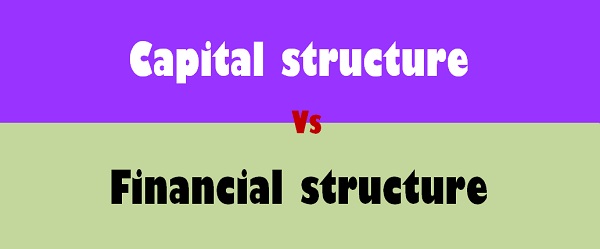What is face value of share? Meaning, Definition, Example of Face Value of a Share 5paisa Market Guide
Contents:


It can be determined by different multiples or valuations granted to companies such as price-to-earnings, price-to-sales, enterprise-to-EBITDA, etc. When appraisal is higher, then market value is also higher. Generally, the stocks are issued with a face value of Rs 10. Nominal value has been considered as Opposite to the market value.it is also known as redemption or unadjusted price in terms of securities. Nominal value is the mentioned or stated value of issued security.
What to know about the Silicon Valley Bank collapse – PBS NewsHour
What to know about the Silicon Valley Bank collapse.
Posted: Mon, 13 Mar 2023 07:00:00 GMT [source]
However, just by scrolling a little down, you can easily find book value per share of the company. The content on this site is for informational and educational purposes only and should not be construed as professional financial advice. Should you need such advice, consult a licensed financial or tax advisor.
What is Current Ratio? – Importance, Formula & Calculation
The PBV ratio is important as it helps in understanding whether the stock seems reasonable as compared to its balance sheet. The PBV ratio is more useful for firms that hold assets of tangible value. For firms with few tangible assets, the book value is less relevant. For example, companies that consists solely of employees, computers, and office space, don’t have a meaningful book value. Investors must try to understand the impact of face value of a share on a stock split announcement.

According to the face value definition, it is the dollar value of any stock at the time of issuing. Book value literally translates into the value of a company’s book or its financial statements. There are no fixed criteria for deciding on the face value of a stock. Equitymaster has a screener which can help you find high growth companies.
What is face value of share?
Can be defined as the shares currently owned by stockholders, company officials, and investors in the public domain which are available for trading. Thus, a general understanding of face value, issue price, book value, and market value will help investors to perform better in trading. Book value refers to the net worth of the company, which is mentioned in its book. It concerns what all its investors will get after the company sells its assets and pays all its liabilities and debts. However, there is no change in the company’s share capital as a decrease in the number of shares is offset by a corresponding rise in the face value of the shares. Face value is useful to calculate vital financial ratios such as Return on Capital Employed and the Return on Equity during fundamental analysis.
The amount of individuals willing to pay security to a corresponding seller in terms of stock exchange is indicated by the basic Market Value of shares. Face value is not fixed or bound by market conditions and is affected by a proportion to the stock split ratio. The worth of an asset in the financial market is known as Market Value (also known as ‘open market valuation’ or OMV). When both assets and companies are being talked about, then it can be referred to as market capitalization.
- The market value per share is the current value of the share.
- The face value of the shares and bonds is clearly stated on the share/bond certificate.
- The stocks mentioned in this article are not recommendations.
- The majority of private investors purchase bonds as a safe haven investment.
- Both are quite useful to identify such stocks which are undervalued with robust earnings growth.
ClearTax can also help you in getting your business registered for Goods & Services Tax Law. As a shareholder, your job is to think about whether or not that sounds better than whatever else you could do with your money. The dividend will be whatever the company makes after paying all its expenses and taxes.
Every Sunday we email people like you with top tips, insights and opportunities to manage your finances and build your online business. But, people usually get mixed between their meanings or decipher them in a wrong way. Various people use them conversely which is absolutely wrong. Hence, it is essential for you to know the difference between them as they have entirely distinct meanings. Invest in stocks with Free Expert Advice only with MO INVESTOR.
If the Market value is less than the Book Value
Stock Brokers can accept securities as margin from clients only by way of pledge in the depository system w.e.f. September 1, 2020. Pay 20% upfront margin of the transaction early to trade in the cash market segment. Check your Securities /MF/ Bonds in the consolidated account statement issued by NSDL/CDSL every month. Face value is the dollar value as stated by the issuer of any security when issuing. The nominal value is the fundamental concept of the stock market. This value remains fixed when publicly traded firms offer stocks through the IPOs .
The book value is the value of all total assets of a company minus its total liabilities. Let’s take a small example here – Infosys had the most recent reserves of Rs. 69,492 crores and shareholder equity of Rs. 2,123 crores. That means, their total book value was Rs. 71,615 crores. Infosys also has total shares outstanding are 426 crores. The book value is normally the sum of a company’s retained earnings and shareholder equity. These are 2 big concepts – shareholders’ equity and retained earnings.
It can also be https://1investing.in/ed as the original cost of the stock as it does not represent the actual market value. A dividend is a reward that is paid to the shareholders by a public listed company. And to be eligible for dividends payouts, you must have a demat account and invest in dividend-paying stocks. Also known as the par value, face value is the value of the company as listed in its books and share certificates. It is fixed by the company, once it decides to issue its shares and bonds.
Open your FREE Demat Account in 5 Minutes
Only funds above and beyond that point can be released out to investors as dividends, making the funds covering the face value function as a form of reserve. No need to issue cheques by investors while subscribing to IPO. Just write the bank account number and sign in the application form to authorise your bank to make payment in case of allotment. No worries for refund as the money remains in investor’s account. Face value is similarly essential to young entrepreneurs who are beginning to form a company. The capitalization goal is conveniently optimized if the company sets a valuation for each stock delivered.
In the bond market, bond yields can decide whether the bond sells above or below par. However, there is no provision that firms with a face value be listed on the question. This offers companies the option to use relatively low values to assess the scale of the fund. In the face value and bonds, the bond’s face value is the sum the lender owes to the bondholder after the maturity is met.
IIFL Securities Customer Care Number
This clearly shows that assigning a face value to the share on these certificates is extremely important to determine the accounting value of the company’s share. A market value is a stock’s current value quoted in the stock market on stock exchanges. Face value is the stock’s nominal value set at the time of issuance. Market value is determined by the markets or investors and face value is determined by the company. Face value of shares means issue price of shares while market value of shares means trading price of shares at stock exchange.
You can check a share’s face value using your Demat account. Most shares on the Indian market are issued at face value of Rs. 10 per share. Face value, simply put, is the stated value of an investment. It is also defined as the nominal value of a stock or bond.
Investments in securities market are subject to market risk, read all the related documents carefully before investing. The book value reflects the worth of the company’s equity, whereas the market value shows the maximum price at which the company’s share can be traded on the financial market. It is generally used for the purpose of calculating interest in shares and bonds. The value of a share is taken into consideration for computing the market value, discounts, premiums and returns, etc. The stock market determines a stock’s true worth, which fluctuates throughout the trading day as shares are purchased and sold. The majority of private investors purchase bonds as a safe haven investment.

Market value, on the other hand, is the current price at which a financial instrument can be traded on the stock market. As investors purchase and sell shares, market value swings constantly with the ups and downs of the markets. The book value of a company is the net value which is in the books. It means it is the value a company will provide to the investors if the company goes bankrupt. This value is determined by selling off all the assets and paying off the liabilities and dividing the left amount by the number of shares. Although not very high in comparison to the market value, if the market value of a stock goes below the book value then it is a good buy signal.
- Moneymint is a personal finance website that offers a variety of resources and tools to help individuals earn money online, save money, and create passive income streams.
- So, it is the par value of the common stock of a company in the balance sheet.
- That being said, book value works best for companies that have considerable fixed assets and investments at their disposal.
- Face value is the value of a company that is listed in its books and share certificate.
- This article will take you through a complete guide on Face Value of Share.
- Knowing the face value of shares or bonds is an important step that investors must follow before starting to trade in them.
Furthermore, for an book value face value market value to begin with trading stocks, it is necessary to determine the face value of the shares. Companies issue shares and bonds with a defined value, it is known as face value. The face value of a company’s shares is determined by a variety of factors. Share certificates; the documents issued by companies that sell shares in the share market. The share or bond certificate contains the Face value, class of shares, issue dates, and more on the shares of a company. There are three important concepts that should be discussed in this article.
The face value of stocks may also be subject to change as a result of some corporate actions like the stock splits. In such cases companies usually split the bonds and shares with a lower face value than before. Face value of stocks or shares means the price of the stock as listed by the company, which is also the price at which you buy the stock or share.